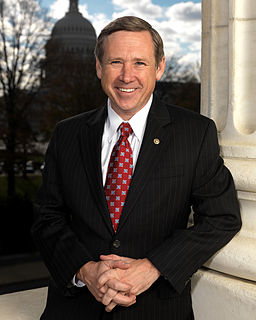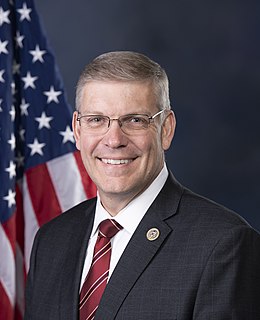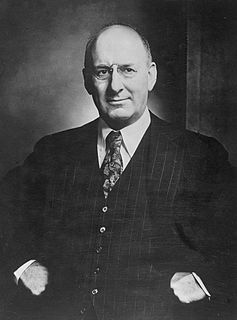A Quote by Paul Ryan
Related Quotes
I have fought against excessive spending my entire career. And I got plans to reduce and eliminate unnecessary and wasteful spending and if there's anybody here who thinks there aren't agencies of government where spending can be cut and their budgets slashed they have not spent a lot of time in Washington.
The question is: How do we reduce spending from 25% of GDP, which is where Obama put us? The focus is on total government spending. Can we bring it down, in a reasonable and politically acceptable way? That's what the Paul Ryan plan does. It puts us on a gradual reform path to reducing the size of government.
If the US Government was a family—they would be making $58,000 a year, spending $75,000 a year, & are $327,000 in credit card debt. They are currently proposing BIG spending cuts to reduce their spending to $72,000 a year. These are the actual proportions of the federal budget & debt, reduced to a level that we can understand.
Conservatives in general, and even so called Tea Party conservatives, are not against transportation spending. Indeed, interstate commerce is one purpose of interstate highways and byways, and is one of the things the federal government is actually supposed to spend our tax dollars on. What conservatives are opposed to is needless and excessive spending, pork-barrel spending, deficit spending, spending to pick winners and losers among American individuals and corporations, and spending to promote the social and economic whims of the Washington few.
Is it just a coincidence that as the portion of our income spent on food has declined, spending on health care has soared? In 1960 Americans spent 17.5 percent of their income on food and 5.2 percent of national income on health care. Since then, those numbers have flipped: Spending on food has fallen to 9.9 percent, while spending on heath care has climbed to 16 percent of national income. I have to think that by spending a little more on healthier food we could reduce the amount we have to spend on heath care.
Whether government finances its added spending by increasing taxes, by borrowing, or by inflating the currency, the added spending will be offset by reduced private spending. Furthermore, private spending is generally more efficient than the government spending that would replace it because people act more carefully when they spend their own money than when they spend other people's money.
A curious mind does not say to consumers "What do you want?" A curious mind understands context, understands behavior, understands spending and spending patterns - the accumulation of a day's purchases, or spending over a week or a year. A curious mind asks the questions that open up the consumer to talk about her latent dissatisfactions, hopes, wishes, and dreams.






























